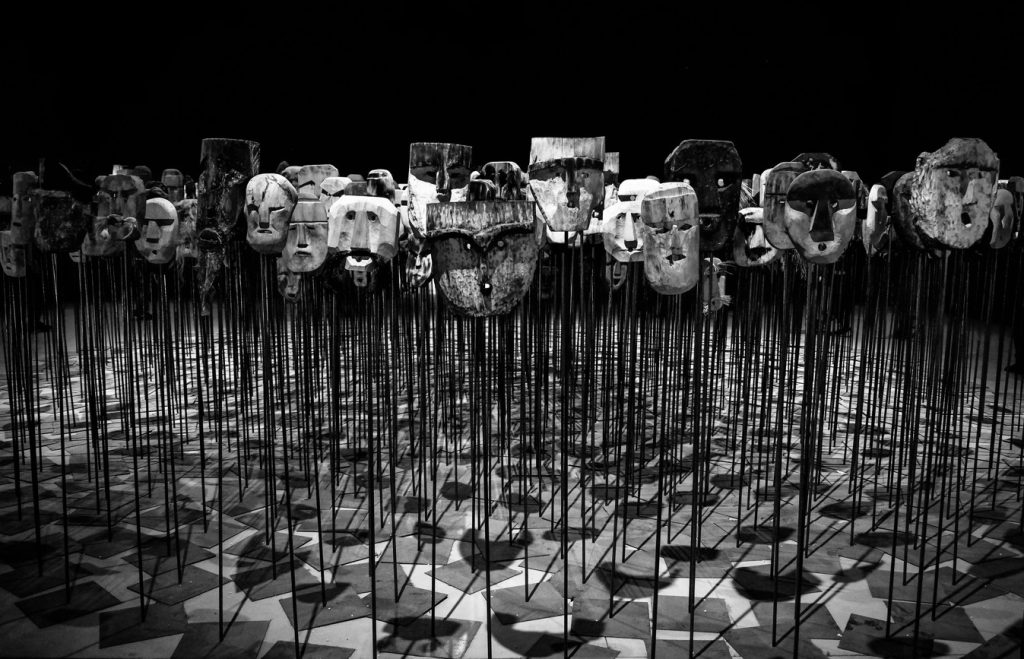A recent landmark study by The Royal Central School of Speech and Drama and Tara Theatre found a 20% wage gap between white theatre producers and their contemporaries of other races. Older reports, meanwhile, found that 93% of British theatre workers are white, with theatre audiences having a similar racial makeup. That’s despite Black and Minority Ethnic people making up 46% of the population in London, the epicentre of British theatre.
There is, in other words, a long way to go when it comes to achieving meaningful black representation in British theatre. While there may have been earlier appearances by black actors on British theatre stages, American-born actor and playwright Ira Aldridge was the first to achieve any sort of prominence. He made his London debut in a low-profile production of Othello in 1825, aged just 17 and became one of the most prominent faces in British theatre.
He was also an innovator. On the closing night of any given production, for example, he would directly address the theatre audience, speaking to them about important social issues of the day. He would draw particular attention to the slavery abolitionist movement, something he was celebrated for doing.
As celebrated as Aldridge was, he was also the victim of insidious racism at times. Critics from The Times, for instance, took fault with his “copper” complexion and asserted that he was “insufficiently dark for Othello.”
By the time the 20th Century rolled around, black musicals were starting to make their mark on the British theatre circuit, with African-American groups proving particularly popular. A good example of this is In Dahomey, the first full-length musical written by African Americans. Making its London debut at the Shaftesbury Theatre in May 1903, the musical helped spark dance crazes such as the Charleston and the Cakewalk.
By the 1920s, productions such as Showboat were tackling subjects such as racial prejudice and unhappy marriages. That decade also saw the emergence of two more black superstars in British theatre in the shape of Florence Mills and Paul Robeson. Mills is renowned for having silenced “anti-coloured” protestors with a single song. Robeson, meanwhile, drew on his experiences as the son of a former slave turned preacher to champion working-class causes.
The 1950s and 1960s saw an influx of black immigrants from The Caribbean in particular. Among those immigrants were theatre makers and producers who would go on to enrich the British theatre space. Among the most notable was Trinidad and Tobago-born Errol John, who won the Observer prize for Moon on a Rainbow Shawl.
By the 1970s, Britain was home to numerous black theatre companies, which have continued to grow and advocate for change in the years since. And while many more black actors have broken through and achieved mainstream success in recent years than was the case in previous decades, it’s clear that representation isn’t anywhere near where it should be.
For Solange Urdang OBE and Omar F Okai, co-founders of the Black British Theatre Awards, it’s as important to advocate for change as it is to celebrate black excellence on the stage and behind the scenes.
“When we started the Black British Theatre Awards in 2019, we knew that we were building on a long history of black artists, producers, writers, and other theatremakers who had to make spaces for themselves,” she says. “We wanted to honour their efforts by illuminating the breadth and depth of Black talent in the UK theatre industry.”
Urdang, who was recently invested with an OBE for services to the creative arts points out that it’s also important to keep developing and promoting black talent.
“We support the development of black theatre professionals,” added the co-founders. “We advocate for equity, visibility and opportunity throughout the UK theatre sector.”
Among the initiatives it facilitates on this front are outreach programmes, workshops and career information, mentorships and lectures, work and training placement opportunities, student support at participating colleges, and industry partnerships.
It’s the kind of work which builds upon the long history of people and organisations fighting for more equitable representation in British theatre. And while there’s still a lot more room for improvement than those early pioneers may have hoped, it’s also clear that there’s much to be optimistic about when it comes to the future of black British theatre.
The link to ticket sales can be found here.
- Solange Urdang OBE and Omar F Okai, co-founders of the Black British Theatre Awards


